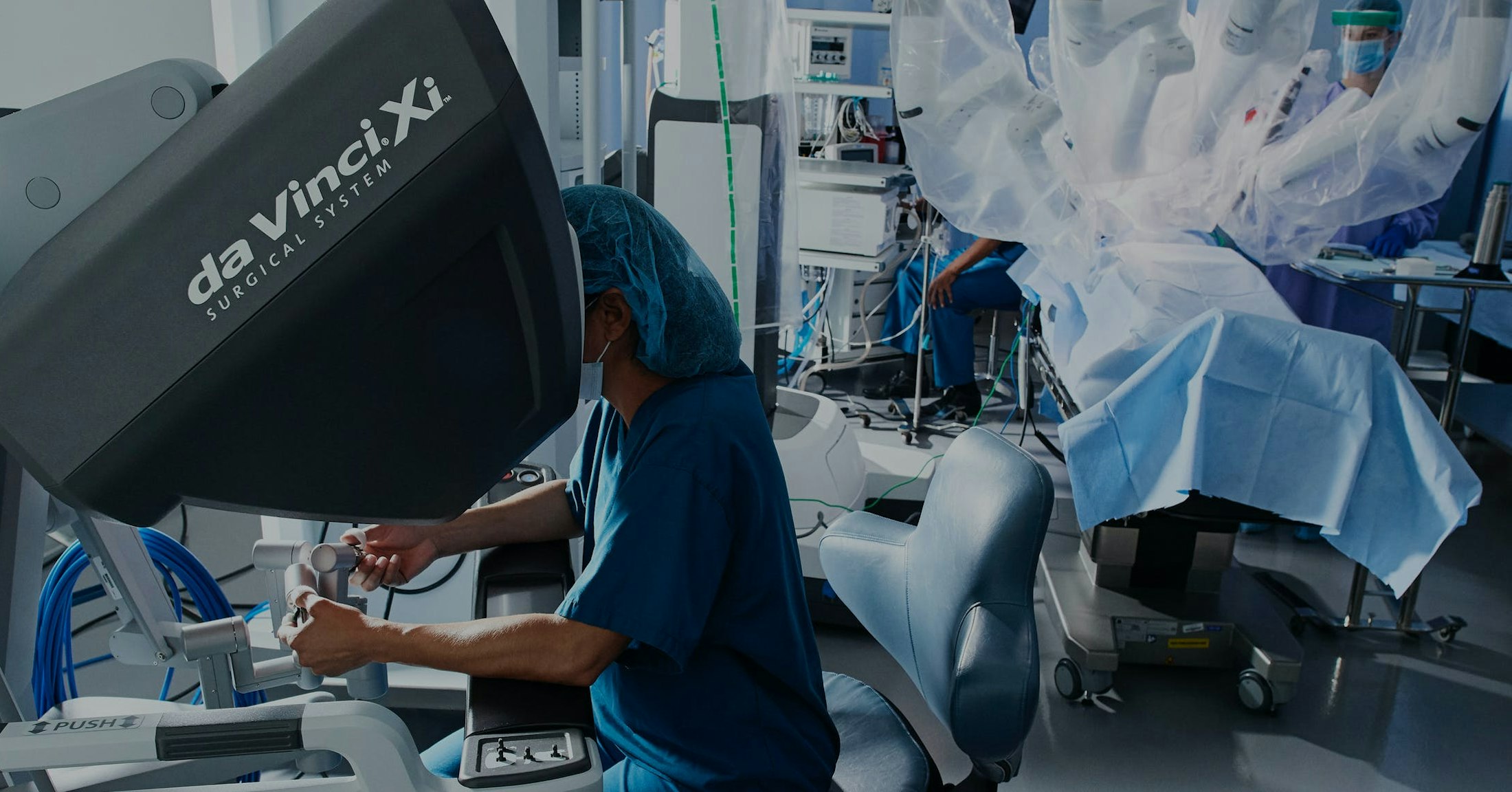

It’s fair to say that no one looks forward to surgery, but many symptoms or conditions simply can’t be put off. If you feel anxious about surgery, be sure to tell your surgery care team and ask about the measures in place to protect you. You can also explore the different ways doctors can perform the surgery you need.
Traditional open surgery, where a surgeon operates with handheld instruments through a large cut (incision), may be the first method that comes to mind. However, you could also be a candidate for a less invasive approach requiring just a few small cuts, called minimally invasive surgery. Minimally invasive surgery includes laparoscopic surgery and robotic-assisted surgery.
Intuitive, a pioneer in robotic-assisted surgery and maker of da Vinci surgical systems, was founded in 1995. Today, the company continues to create and refine robotic systems, giving surgeons the added benefits of technology that helps extend their capabilities.
This website is intended to provide patients with information about robotic-assisted surgery with da Vinci systems. Da Vinci surgical systems are cleared by applicable regulatory agencies for use in a number of different procedures. It’s important to remember that Intuitive does not provide medical advice. After discussing all options with your doctor, only you and your doctor can determine whether surgery with a da Vinci system is appropriate for your situation. You should always ask your surgeon about his or her training, experience, and patient outcomes.
Doctors use many technologies that enhance their capabilities beyond what the human body allows. MRI and CT scanners, for example, enable doctors to “see” inside the body. Similarly, many surgeons perform robotic-assisted surgery using a da Vinci system because it extends the capabilities of their eyes and hands.
Da Vinci surgical systems are cleared by applicable regulatory agencies for use in several types of surgery.
Where appropriate, minimally invasive surgery may be an option for some heart conditions.
Learn more about robotic-assisted procedures for patients with colon conditions or rectal conditions.
General surgery covers many types of procedures, including inguinal hernia repair, ventral hernia repair, gallbladder surgery, and bariatric surgery.
Learn more about minimally invasive benign hysterectomy or hysterectomy for cancer.
Transoral (through the mouth) robotic-assisted surgery may be an option for mouth and throat surgery.
When surgery is an option for conditions such as lung cancer, doctors may choose minimally invasive surgery with da Vinci.
Important safety information
Patients should talk to their doctor to decide if da Vinci surgery is right for them. Patients and doctors should review all available information on non-surgical and surgical options and associated risks in order to make an informed decision.
Serious complications may occur in any surgery, including da Vinci surgery, up to and including death. Serious risks include, but are not limited to, injury to tissues and organs and conversion to other surgical techniques which could result in a longer operative time and/or increased complications. For important safety information, including surgical risks, indications, and considerations and contraindications for use, please also refer to www.intuitive.com/safety.
Individuals' outcomes may depend on a number of factors, including but not limited to patient characteristics, disease characteristics and/or surgeon experience.
Da Vinci Xi system precaution statement
The demonstration of safety and effectiveness for the specific procedure(s) discussed in this material was based on evaluation of the device as a surgical tool and did not include evaluation of outcomes related to the treatment of cancer (overall survival, disease-free survival, local recurrence) or treatment of the patient’s underlying disease/condition. Device usage in all surgical procedures should be guided by the clinical judgment of an adequately trained surgeon.
Medical advice and locating a doctor
Patients should talk to their doctor to decide if da Vinci surgery is right for them. Other options may be available and appropriate. Only a doctor can determine whether da Vinci surgery is appropriate for a patient’s situation. Patients and doctors should review all available information on both non-surgical and surgical options in order to make an informed decision.
Surgeons who perform surgery using the da Vinci system can be found using the Surgeon Locator. Intuitive Surgical provides surgeons with training on the use of the da Vinci system but does not certify, credential or qualify the surgeons listed in the Surgeon Locator.
Product names are trademarks or registered trademarks of Intuitive Surgical or their respective owners. See www.intuitive.com/trademarks.